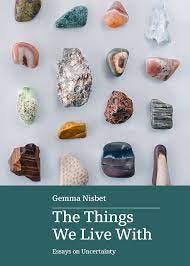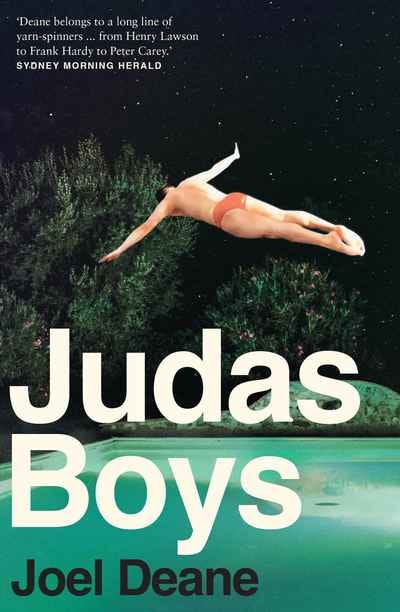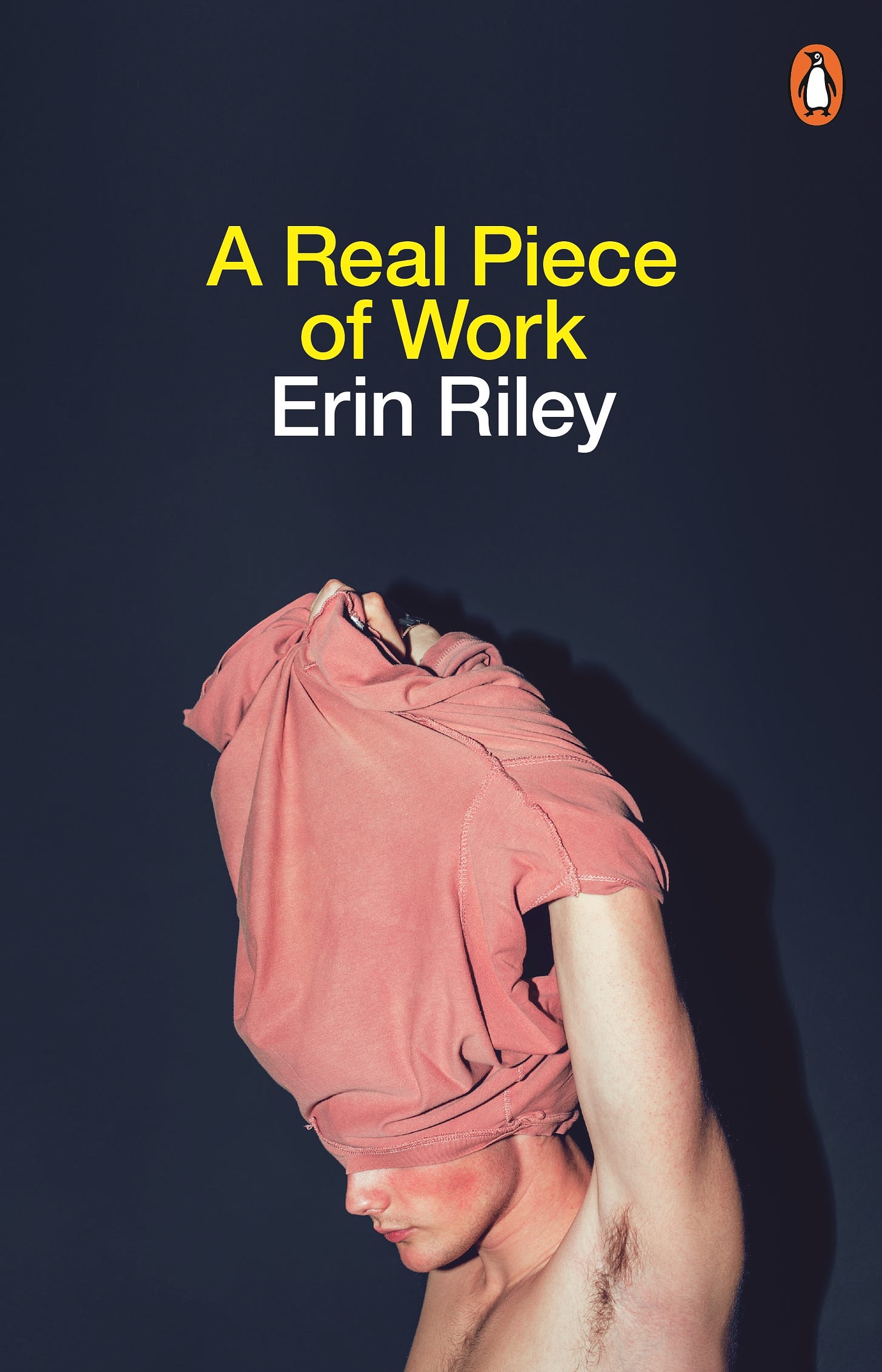Sorry friends, this is a day late! But I know you will forgive me. My February news is that it’s been really hot, I feel shambolic but also my PhD has passed (with minor amendments). Soon I will be a Doctor of Words. TV highlights have been Cowboy Bebop (both series) and Fleishman is in Trouble. Currently watching This is Going to Hurt (great!), latest Curb Your Enthusiasm (RIP Richard Lewis :() and Buffy, the Vampire Slayer (my first time!). I saw and loved May/December. And I adored this comic about Charles Melton:
I kind of liked Poor Things and this piece gave me food for thought:
On a vampire jag now - weirdly - and recently saw the strange and lovely Only Lovers Left Alive , and currently re-reading The Moth Diaries.
There have been a few books swirling but I thought I’d highlight some local numbers that may have gone under the radar.
The Things We Live With - Gemma Nisbet, (Upswell, 2023)
This is an exquisite read, a collection of “essays on uncertainty” that explores the meaning of the things we keep, how we relate them to people, and to our lives in general. In the first essay, Edward Sylvester Hines, Nisbet is dealing with her father’s possessions after his death, and through the experience getting to see a different side of him, and herself.
“I’ve struggled, too, to elucidate what I’ve been doing with my dad’s stuff, to find the right metaphor to express my relationship with these objects as I find myself inexorably drawn to them. Am I a puzzle-solver or an archeologist attempting to understand the past through the traces its inhabitants have left? A collector aiming to amass a complete set, or something else entirely?” (18)
In the next, the discovery of her baby teeth in an attic unrolls a meditation on childhood and the masks we adopt to make it through the maze of social existence. In the third, Nisbet homes in on her fridge magnet collection, acquired during her her stint as a travel writer, what it means to bring home a souvenir, and how souvenirs can change their meaning over time. In On We Go, Nesbit writes about the origins and talismanic quality of the London A-Z:
“This gets at another thing I liked so much about my A-Z: the sense I had, when I grasped it in my hand, that I held the whole city, fixed and knowable within its highly portable form.” (96)
(I still have my A-Z from my London years - it was a mini and it is full of marked pages, and of course I feel like it’s full of memories too. The A-Z also made me feel like I was never going to get lost.)
I could go on - but I will refrain. Just to say that the essays felt distinct but entangled, calling back to ideas, themes, the transition between pieces was seamless and the order/structure was cohesive, but never felt constraining.
“Though we might imagine we can freeze a picture of a place in our recollections and store it in a piece of tourist tat, neither places nor memory work really work that way. Just as memories are remade each time we recall them, the communities where people live are constantly changing.” (46)
Nisbet cites many of my favourites: Rebecca Solnit, Jane Bennett, Joan Didion and also introduced me to some new ones, Carl Phillips, Lulah Ellender. If you loved Solnit’s Field Guide to Getting Lost, or anything by Vanessa Berry, chances are you will love this too.
There’s an interview with Nisbet here
Judas Boys - Joel Deane (New South, 2023)
“We lived in the same shadow. We forgot the same past. We burned the same future. …”
So this was a quick, taut read with an ending that made me want to go back to the start and read it all over again. The novel starts in the past with Pin attending the funeral of O.B. They were both ‘Judas Boys’, that is, they went to St Judes, a Catholic-brothers-run expensive private school. Pin was the outsider, there on a diving scholarship, and what O.B is, is a matter of opinion. Also at the funeral is Cox (Coxy! ) who talks about himself in the third person, indicating a villainous nature. After the funeral, something transpires between Pin and O.B’s mother, Aya, and then we jump thirty years into the future to where Pin is a disgraced political speech-writer, who has done something unmentionable with a female staffer, and is, let’s just say, exploring the fallout.
Whatever is going on with Pin it all stems from something in his past, and in alternate chapters the story of Pin and O.B and Aya and Tom (O.B’s father) and Cox (O.B’s tormenter) gradually unfurls. In the present-day chapters, Pin is floundering, needs a haircut, has a word-cloud tattoo of all the bad things he’s been and done, has a clear-eyed ex-wife and teenage daughter who has transitioned and there is stuff there too …
I appreciated the judicious placement of cultural references. Anna, Pin’s daughter is named for Anna Kavan, the Shelley poem Ozymandias hovers and lands. A further treat for me was the setting - maybe the first book I’ve read to mention the Mullum Mullum tunnel (not once, but twice!) I couldn’t help but imagine Jill (Pin’s ex)’s house as a done-up version of my childhood home (see last post) … but this might just be because I’m weird.
Judas Boys’ power is all clean prose and restraint. Through careful telling, we learn the really brutal stuff has happened off the page. It is moving (and disquieting) to know that the ghosts of the past are fixtures.
I can see this as a TV series, with certain stories spun out. I don’t know if it’s just the Gen X man-ness + Melbourne setting that reminded me of Christos Tsiolkis and Chris Womersley but all these authors have such a handle on how youth affects/informs adulthood; the young voice never feels forced and the air is always tinged with regret.
A Real Piece of Work - Erin Riley (Penguin 2023)
A Real Piece of Work is a memoir-in-essays that roves around Riley’s life, their experience of being queer trans and finding self and social acceptance. It is a kinetic thing that pounces on moments, sometimes turning them inside out. It enters their workplace (Riley is a social worker and counsellor), their heart-space, their everyday, their family.
I confess: I started reading it out of order. I did a bit of dipping, but then went back to the beginning. The writing is warm, curious, often funny, and always stirring. Highlights for me include Donna, a brief tale of adolescent yearning that takes place in the sweaty utopia of a basketball stadium. Riley, twelve, goes weekly with their Dad, to get lost in an “over-the-top basketball ardour” that is matched or maybe overtaken by their intense interest in the titular starting point guard: “I’d watch her stand and remove six earrings from her left ear, more from her right and stow them delicately in the side pocket of her overnight bag …” :
Obsessive Compulsive Disorder - A Short List offers a history of the author’s OCD experience in childhood/adolescence. This should be required reading for anyone who’s ever tossed off the “we’re all a bit OCD” line. OCD gets branded as quirky, but the reality can be devastating for the individual. This piece is so humane and accessible. Riley’s list-making, rewriting the dictionary, and feeling hard for pieces of rubbish are illuminated, in a tone that’s both warm and painful.
I loved Maggie and Olivia or: Flickering in and Out of Many Things, which starts with a book talk between Maggie Nelson and Olivia Laing from 2016: “Their immense brains are striking and their conversation flows.” Nelson and Laing both write about bodies and freedom, and in this piece Riley joins and extends on their conversation about reparative reading and gender classification:
“I like the idea of placing a reparative lens on the body … if we come to people and the world with a more curious outlook, instead of giving in to the urge to classify, we create a space of openness where reparative work can be done.” (182)
I am always heartened to see memoir that mixes personal and critical and makes all kinds of connections about bodies, place, society etc published here. I wish we had had more of it. I see this sitting with books like Ellena Savage’s Blueberries and Jessica Friedmann’s Things that Helped. Hearty rec!









Congratulations on the PhD!
I love this, Simmone! So fascinating to read your thoughts on Judas Boys and the Erin Riley, which I also loved. Agree that Judas Boys is the kind of book that would benefit from a second reading, knowing what you now know. It’s so elegantly devastating.